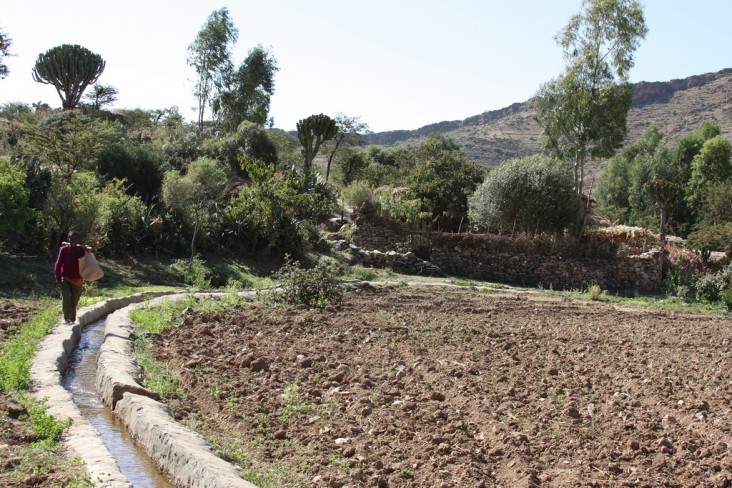- What We Do
- Agriculture and Food Security
- Democracy, Human Rights and Governance
- Economic Growth and Trade
- Education
- Ending Extreme Poverty
- Environment and Global Climate Change
- Gender Equality and Women's Empowerment
- Global Health
- Water and Sanitation
- Water and Development Strategy
- Advancing Water Supply, Sanitation and Hygiene
- Urban Sanitation
- Promoting Water Productivity and Efficiency
- Investing in Water and Natural Resources Management
- Enhancing Water and Disaster Risk Reduction
- Learning and Sharing in the Water Sector
- From The Field
- World Water Day
- Working in Crises and Conflict
- U.S. Global Development Lab

One of the primary paths toward global food security is the revitalization of irrigated agriculture. Irrigated lands account for about 40 percent of agricultural production, and productivity is 2-4 times higher under irrigation. Increased investment in modernizing infrastructure and practices, along with better governance on existing irrigated lands, will be critical to success. Through support for revitalized irrigation systems and the promotion of supplemental irrigation on lands formerly not irrigated, USAID aims to increase water availability and water-use efficiency, thereby improving food security, health and nutrition.
USAID’s Water and Development Strategy focuses on:
- Improving rainwater and soil moisture management;
- Promoting improved technologies and practices;
- Working with research institutes to develop more climate-resilient crops;
- Reusing treated wastewater for agriculture; and
- Strengthening the institutions that establish and enforce equitable water pricing and rights.
USAID’s water programs support the U.S. Government’s Feed the Future initiative by enhancing agricultural productivity through improvements in water management and the introduction of new and improved technologies. USAID partners with the public and private sector, governments, community organizations, water user groups and other organizations to promote these practices and technologies.
Specific projects include:
- USAID’s Morocco Economic Competitiveness (MEC) project is working to improve the agricultural production capabilities of farmers in Morocco. In February 2011, the project launched an information distribution system in which farmers receive personalized daily SMS messages about current weather conditions and the volume of water needed for irrigating their crops on that day. Using automated weather stations, MEC collects weather pattern data, helping to predict water demand for the SMS service. As of September 2012, approximately 500 farmers were already receiving these messages on their cell phones.







Comment
Make a general inquiry or suggest an improvement.